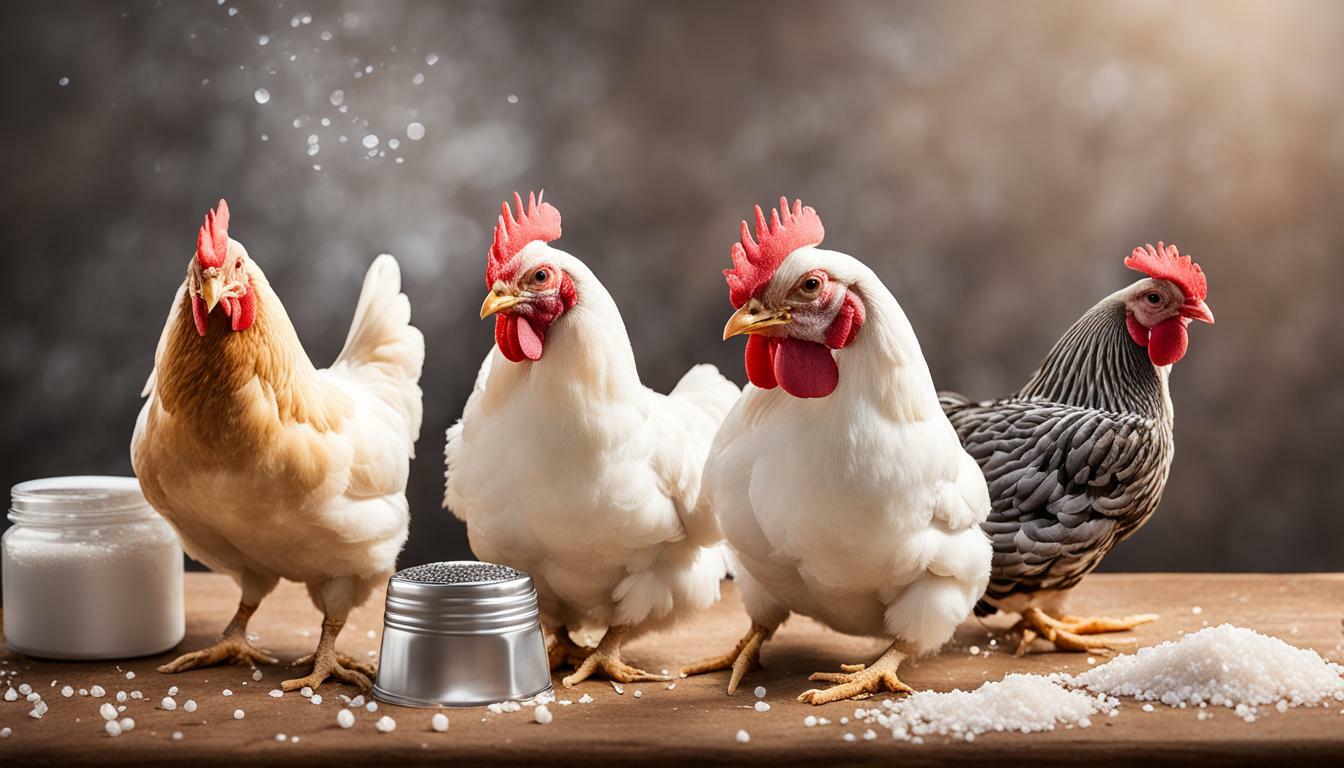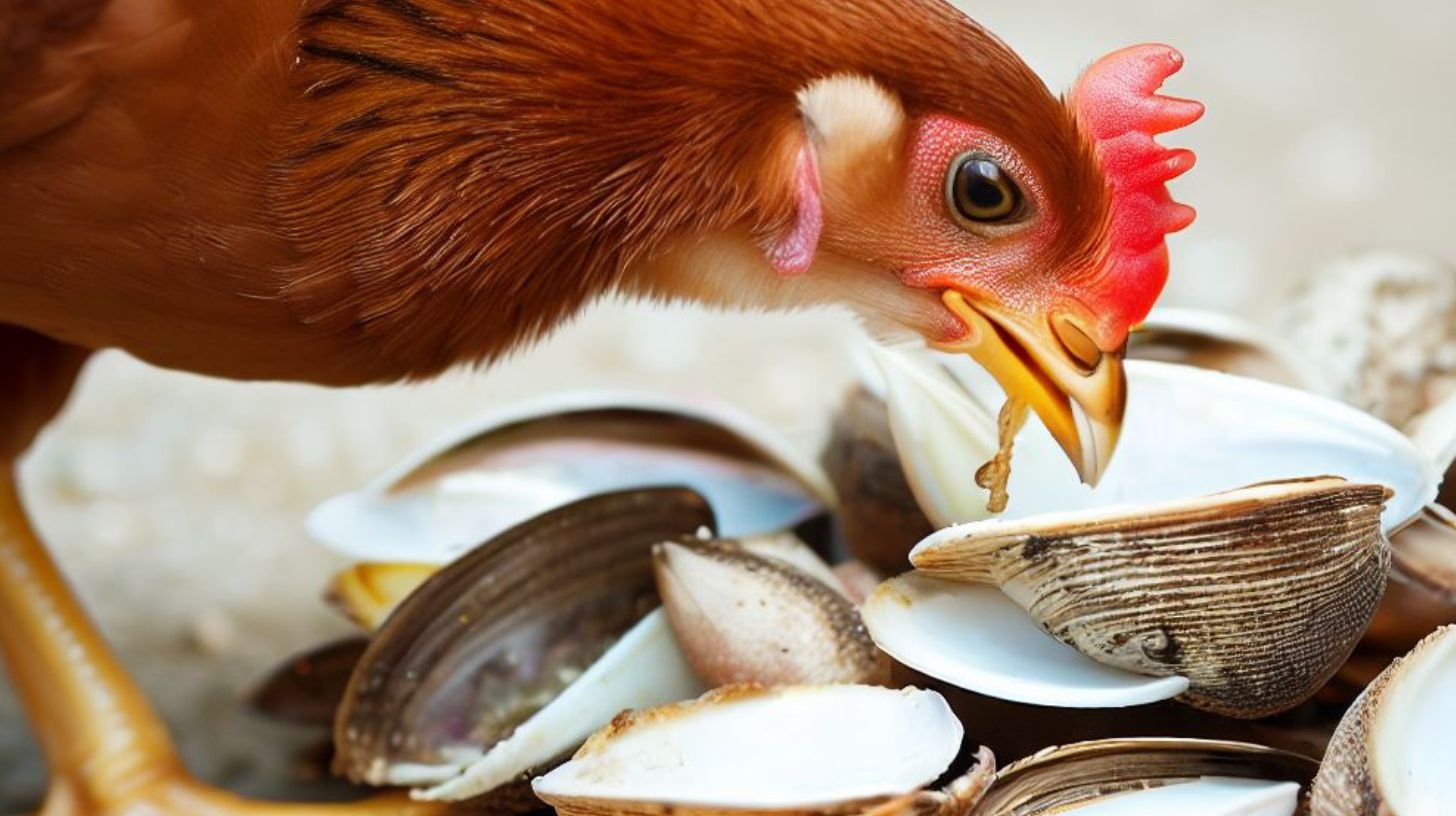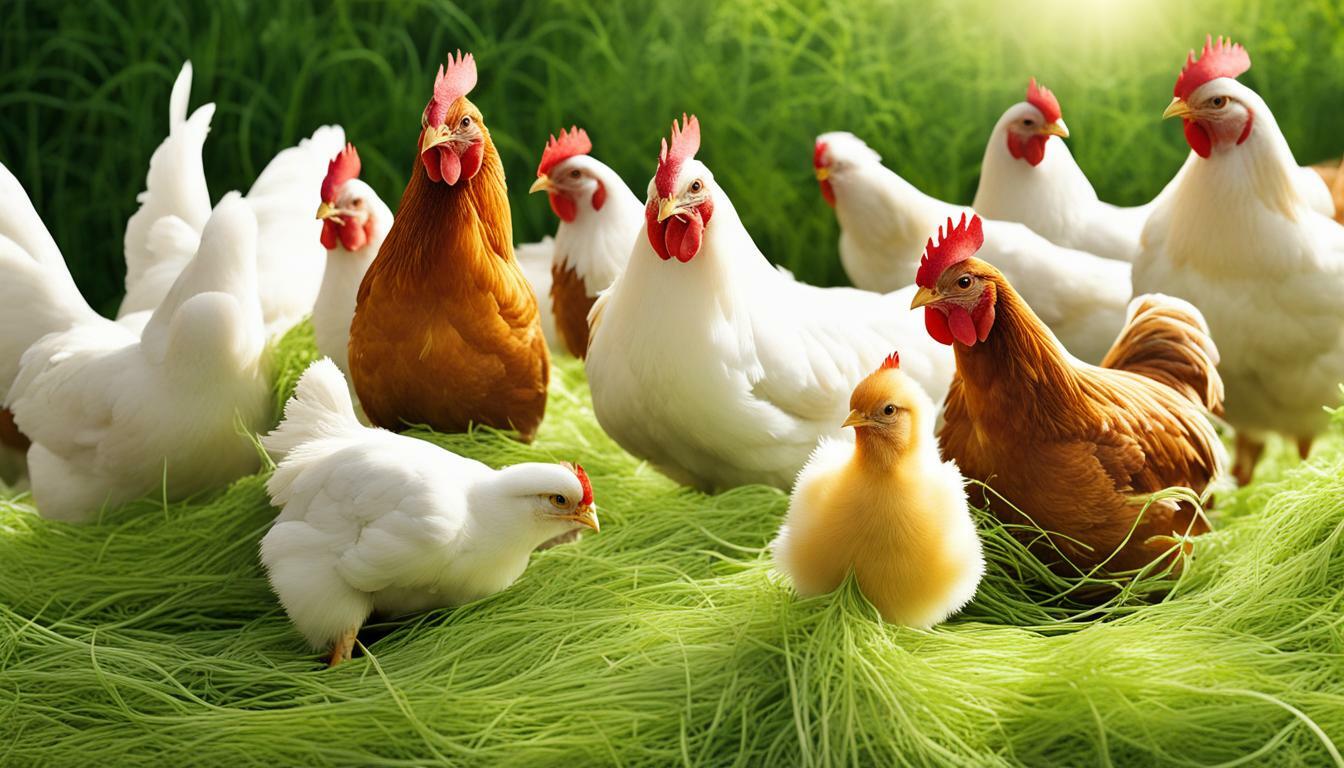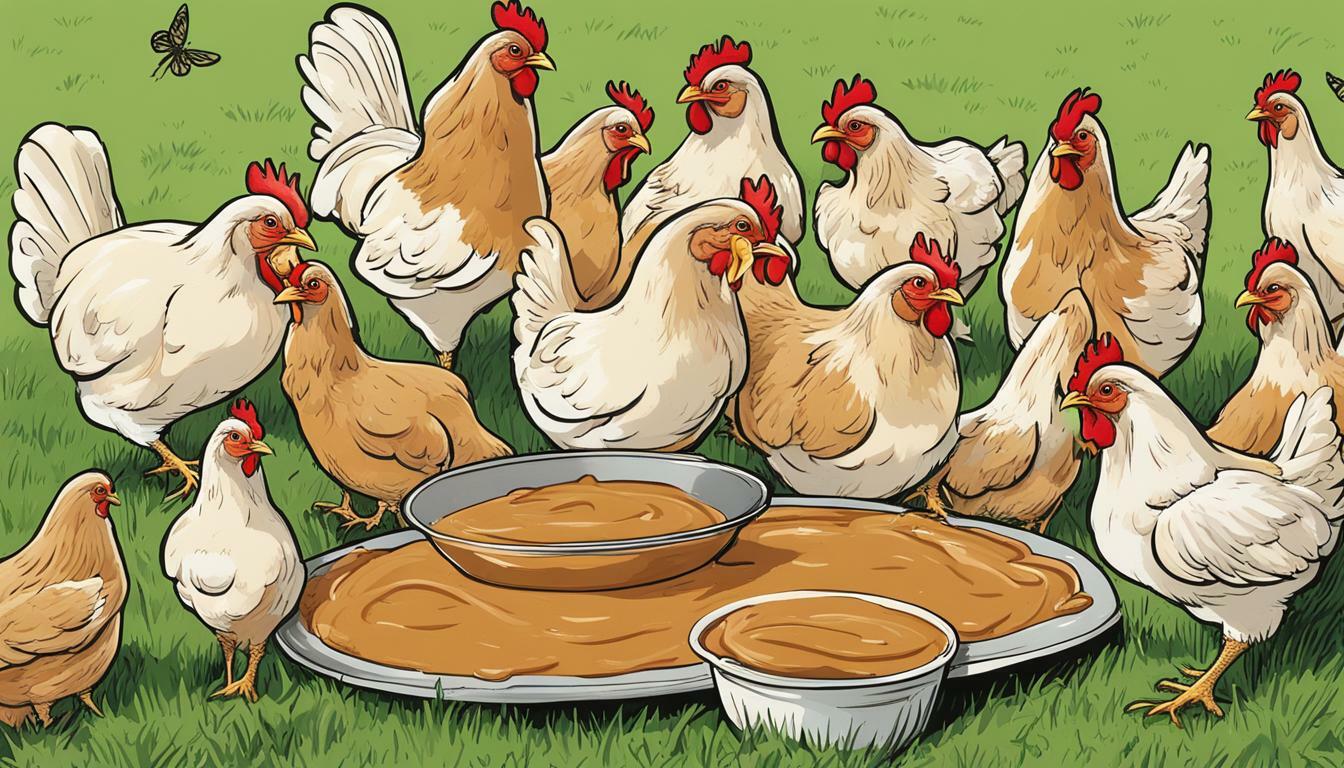Can Chickens Eat Salt? Uncovering the Facts And Effects

Table of content:
- Can Chickens Have Salt?
- How Much Salt Can Chickens Have?
- Is Salt Bad for Chickens?
- What Happens if Chickens Eat Too Much Salt?
- Can Chickens Eat Table Salt?
- Can I Put Salt in Chicken Feed?
- Can Chickens Have Iodized Salt?
- How Much Sodium Do Chickens Need?
- Is Salt Harmful to Chickens?
- Do Chickens Need Salt Licks?
- Final Thoughts
Salt is an important part of human diets, but what about chicken diets? Chickens have different nutritional needs than humans. Too much sodium can be harmful to poultry, so care should be taken with adding salt to chicken feed or treats. This article will explore the topic of chickens and salt further.
Can Chickens Have Salt?
Chickens are able to eat salt, but only in moderation. Small amounts of sodium are necessary for hens and roosters. However, their systems are not equipped to handle large quantities.
Some sodium in the diet supports key functions like fluid balance, nerve transmission, and muscle contraction. Chickens also need chloride, which is the other component of table salt.
So salt isn’t inherently dangerous or prohibited. The real question becomes, how much is too much?
How Much Salt Can Chickens Have?
According to the National Research Council, the recommended sodium level for poultry is between 0.2 and 0.4%. This aligns with 2000-4000 mg per kg of feed.
To put this in perspective, a standard household chicken feed may naturally contain around 2500 mg of sodium per kg.
So there is not much room for adding supplemental salt. Even just 1% salt could potentially cause sodium levels to spike too high.
The salt content of feed may vary based on ingredients. For example, marine products contain more sodium than grains. It’s best to read labels and know the existing sodium content before considering additions.
Is Salt Bad for Chickens?
Too much dietary salt can certainly cause problems for backyard chickens. Excess sodium puts extra pressure on the kidneys as they work overtime to excrete it.
Signs of trouble can include:
- Decreased feed intake
- Increased water intake
- Wet droppings
- Low energy or lethargy
- Decreased egg production
In the worst cases, salt toxicity can lead to kidney damage, heart failure, or even death. Chicks are especially sensitive.
What Happens if Chickens Eat Too Much Salt?
Chicken health really suffers when sodium intake gets too high. Here are some of the effects:
- Dehydration – Excess salt causes thirst as the kidneys draw water from the body to dilute and excrete the sodium.
- Diarrhea – Osmotic changes draw extra fluid into the intestines, causing watery droppings. This further contributes to dehydration.
- Eggshell problems – To produce eggshells, hens need calcium. However high salt impairs calcium absorption and retention. Weak shells can result.
- Reduced production – Salt stresses the kidneys, throwing off hormone balance. This negatively affects the hen’s laying cycle.
- Feather issues – Without proper nutrition, new feathers may grow brittle or malformed. Hens may pull out feathers of flockmates (feather pecking).
- Cannibalism – Extreme feather pecking may lead to vicious attacks. Salt stress seems to agitate such aggressive behaviors.
Clearly high sodium takes a heavy toll on chicken health and welfare. Knowing safe levels is critical.
Can Chickens Eat Table Salt?
Table salt contains about 40% sodium by weight. Just a pinch therefore equates to a hefty sodium hit.
Many chicken keepers use iodized table salt in moderation as a supplemental source. But the fine texture means it’s easy to overdo.
Chickens may also reject food with clumped table salt adhered. For even coverage, it should be thoroughly mixed into feed.
Again, restraint is required. A sprinkle here and there across feed is one thing. Dumping in excessive table salt is risky.
Can I Put Salt in Chicken Feed?
Most commercial chicken feeds are formulated to provide balanced nutrition already. Arbitrarily adding salt is generally not recommended.
In some situations, a pinch of salt makes sense:
- Chickens housed in very hot climates may need electrolyte support.
- Baking soda and salt can help deter mold in homemade wet feeds.
- During heat stress or disease recovery, added salt may encourage eating.
- Salt boosts dietary iodine, which helps thyroid function.
However, the existing sodium levels in feed should always be considered first. Start with tiny amounts and slowly increase based on need.
Free-choice salt licks are a safer option. Chickens can self-regulate based on their requirements.
Can Chickens Have Iodized Salt?
Iodized salt provides a valuable source of iodine for chickens. Iodine supports hormone production and metabolism.
In some regions, iodine deficiency is common due to low soil levels. This can cause thyroid problems, impaired growth, and poor egg production.
Using iodized salt in feed is one way to correct this. The iodine content is regulated to deliver consistent supplemental levels.
However, the accompanying sodium still needs monitoring. As always, salt should be used judiciously.
Keep in mind that other iodine sources for chickens include seaweed meal, fish products, and supplementation.
How Much Sodium Do Chickens Need?
The National Research Council sets the recommended sodium intake for chickens at 0.2-0.4% of daily feed intake. This aligns with 2000-4000 mg per kg of feed.
Sodium supports key functions:
- Maintaining fluid levels and blood pressure
- Allowing transmission of nerve signals
- Facilitating muscle contraction
Deficiencies are rare if commercial feed is used. Chickens on all-scratch diets may need supplementation through salt licks.
Factors like temperature, growth stage, and activity level impact requirements. For example, chickens need more sodium during hot weather to replace losses from panting.
Getting the optimal sodium balance maximizes flock health and productivity.
Is Salt Harmful to Chickens?
Yes, excess salt can be quite harmful to chickens. They are adapted to consume far less sodium than humans.
Too much dietary sodium overburdens the kidneys and leads to dehydration. It also causes electrolyte disturbances, diarrhea, lethargy, and reductions in egg production.
In the worst case scenario, extreme salt toxicity can result in kidney failure, heart issues, convulsions, coma, or death for chickens.
While small amounts are beneficial, extra salt should not be arbitrarily added to feed without good reason. Free-choice salt licks allow chickens to self-regulate intake.
Do Chickens Need Salt Licks?
Salt licks provide a healthy way for chickens to supplement their diet with salt and other minerals. Licks allow the flock to choose how much they consume based on need.
Commercially prepared salt licks contain compressed salts, minerals, and other ingredients like oyster shells. This provides a balanced boost.
Chickens will eagerly lick these blocks as desired to acquire sodium and other nutrients. Especially during warmer months, chickens use licks to replenish electrolyte losses.
Licks should be placed in a covered location to avoid saturation during rains. Positioning them away from feeders prevents contamination of feed.
For chickens without sufficient outdoor access, free-choice licks are highly recommended. They allow the flock to self-regulate sodium intake safely.
Final Thoughts
When used judiciously, salt can be a beneficial supplement for chickens. However excessive sodium quickly causes toxicity problems in poultry.
Knowing the existing salt content of feeds, and monitoring intake levels, helps prevent overdose. Providing free-choice salt licks is the healthiest approach to meet chickens’ salt requirements.
With some care and common sense, chicken keepers can safely use salt to support flock health. Monitoring birds for signs of sodium excess allows timely adjustment. By understanding chickens’ needs, we can optimize their diets.
Welcome. I’m Adreena Shanum, the proud owner of this website, and I am incredibly passionate about animals, especially poultry. I founded adreenapets.com as a labor of love, stemming from my desire to share my knowledge and experiences with poultry enthusiasts worldwide.




